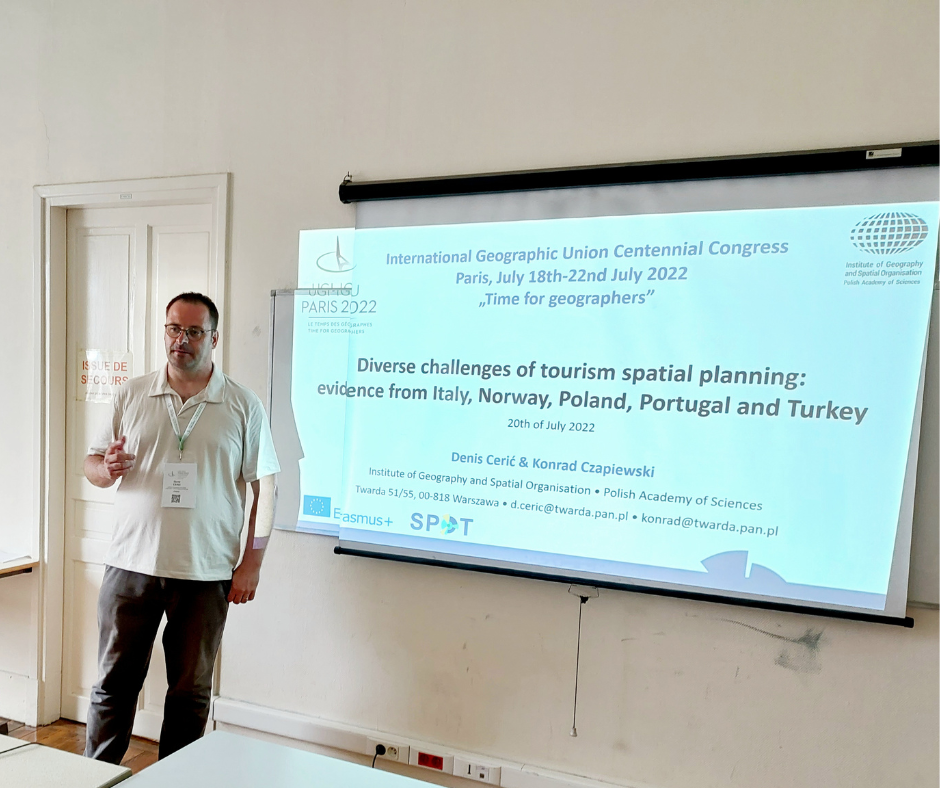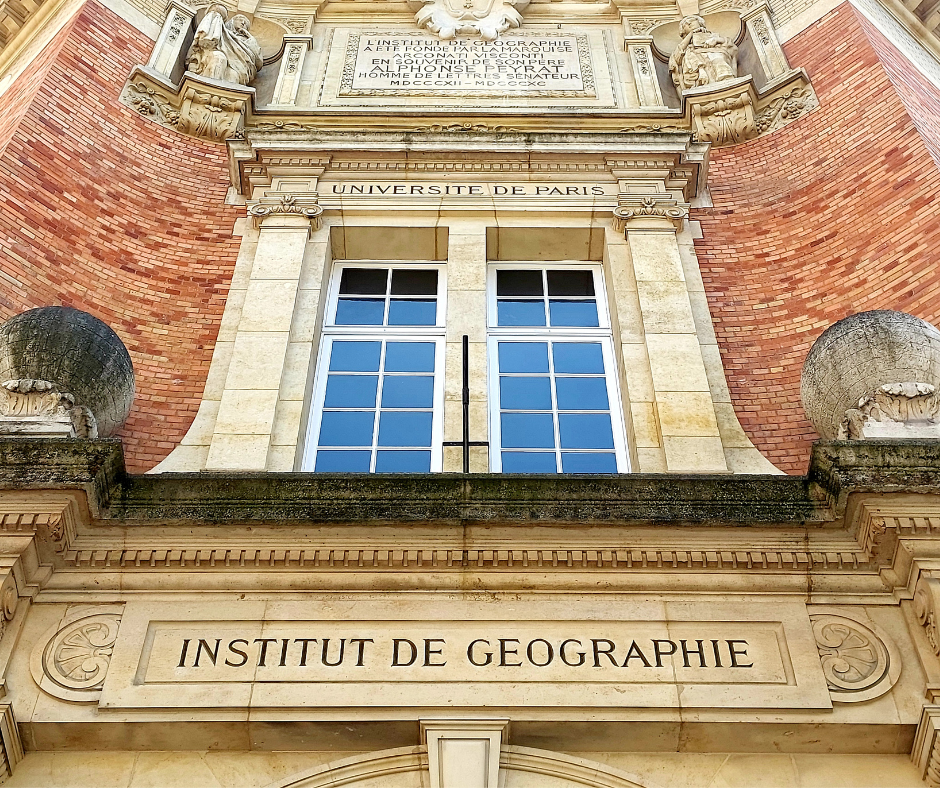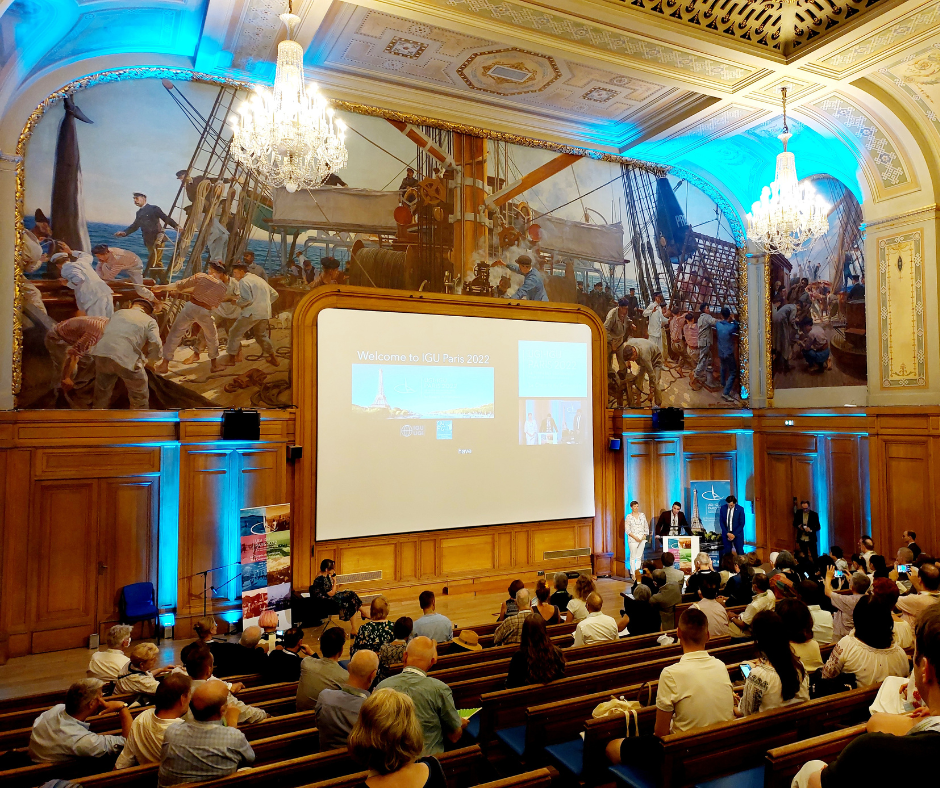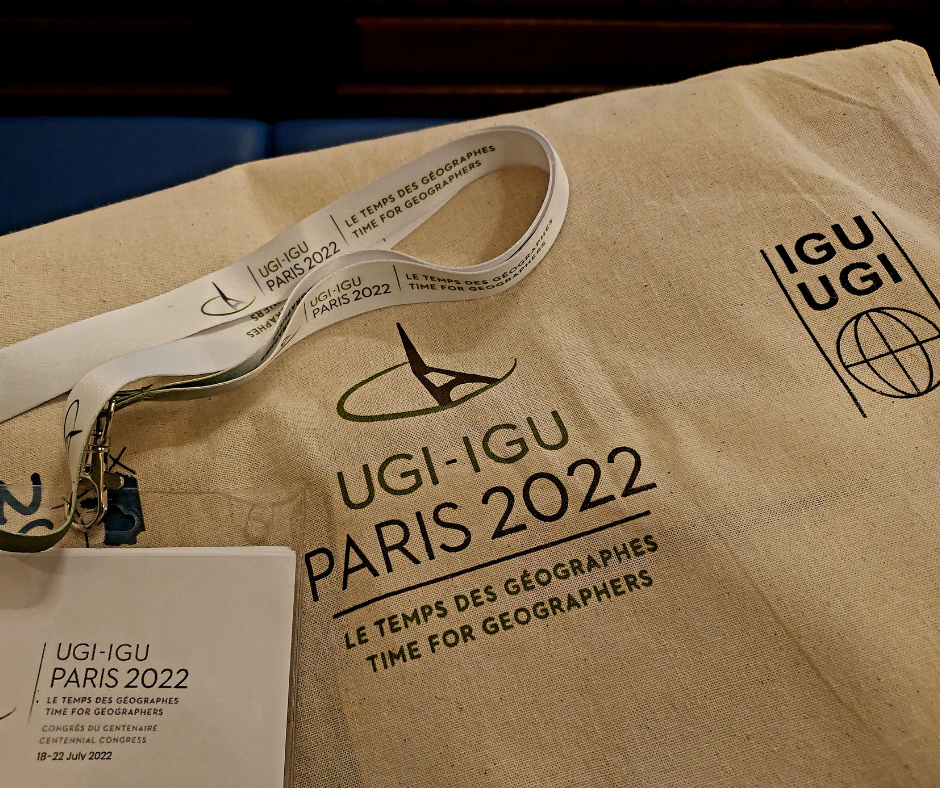The team of Erasmus+ SPOT participated in the congress of the International Geographical Union “Time for geographers”, which took place in Paris, University of Sorbonne, between July 18th and 22nd, 2022.
After a few IGU conferences held online in 2020 and 2021, almost 2,200 geographers from 92 countries all around the world finally gathered “face to face” at this prestigious event. Also, an additional 300 scholars were present online. This IGU Congress was the Centennial Congress of the International Geographical Union, which celebrated 100 years of regular meetings. The host and main organiser of this extraordinary event was the French Committee of Geography (CNFG).
After opening the IGU Congress and addressing the contemporary challenges of geography and geographers by keynote speakers, the congress consisted of numerous round tables, almost a hundred scientific sessions, exhibitions and various social events.
Some outputs of the SPOT project have been presented during the scientific session entitled “Tourism governance in the Anthropocene: enhancing landscape, local knowledge and pro-environmental behaviour for facing environmental crisis” organised by the IGU Commission Geography of Governance. Presentation entitled “Diverse challenges of tourism spatial planning: evidence from Italy, Norway, Poland, Portugal and Turkey” was presented by Denis Cerić and Konrad Czapiewski from the Institute of Geography and Spatial Planning – Polish Academy of Sciences.
Denis Cerić and Konrad Czapiewski presented the outcome of the SPOT project regarding tourism governance development in five different countries. Answers on two research questions have been elaborated: 1) How the challenges of spatial planning in tourism destinations are addressed in the strategic documents of five selected European countries – Italy, Norway, Poland, Portugal and Turkey?, and 2) Which changes in spatial planning of tourism could be observed regarding the COVID-19 pandemic?
Italy, Norway, Poland, Portugal and Turkey are countries characterised by substantially different locations within the continent, different importance of tourism in creating national income, different nature of tourism, and different ways in which tourism is managed and planned. Authors argued that the comparison of such different countries can make an important contribution to discussions on addressing tourism spatial planning challenges in strategic documents prepared by central and sub-central governments. The research’s empirical layer was based on peer-reviewed theoretical and case study reports on spatial planning systems, concepts and tourism developments in mentioned five countries developed by SPOT project beneficiaries.
Content analysis has been employed to identify the challenges for spatial planning in observed countries and the output summarises and underlines the common challenges and those specific to a particular area. Common elements of tourism spatial planning could be found in planning tradition, regulatory layer, the desire for a fast response to the challenges of socio-economic development processes and challenges related to the social dimension, and other various common challenges of spatial planning of tourism destinations.
The chosen topic fit well inside this session of IGU Congress: a couple of questions being asked after the presentation, a few comments and interest in the SPOT project itself, and the appreciation from the sessions’ chair Federica Burini (University of Bergamo). The topic will be published as a chapter in a SPOT project’s book entitled “Contemporary challenges of spatial planning in tourism destinations” edited by Tomasz Napierała, Katarzyna Leśniewska-Napierała (University of Lodz) and Giancarlo Cotella (Politecnico di Torino). Follow our project for detailed results and conclusions – the publication is in preparation.





